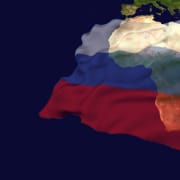|
Getting your Trinity Audio player ready...
|
Illicit financial flows create an unjust society and further worsen inequality, especially for underdeveloped countries. This is the message from the Tax Justice Network (TJN), which released its 2022 Financial Secrecy Index (FSI) on 16 May.
The FSI is a ranking of jurisdictions which fuel financial secrecy by helping individuals to hide their finances from the rule of law, and launder money. It is released every two years, and the 2022 edition is the seventh since 2009.
The index grades each country’s financial and legal system with a secrecy score out of 100 – a score of 0 is full transparency and a score of 100 is full secrecy. The country’s secrecy score is then combined with the volume of financial services the country provides to non-residents, to determine how much financial secrecy it supplies to the world – resulting in a more balanced score for that country.
A higher rank on the index does not necessarily mean a jurisdiction has more secretive laws, said TJN, but indicates rather that the jurisdiction plays a bigger role globally in enabling banking secrecy, anonymous shell company ownership, anonymous real estate ownership or other forms of financial secrecy, which in turn enable laundering of illicit financial flows, tax evasion, and the evasion of sanctions.
For instance, a highly secretive jurisdiction that provides very little financial services to non-residents, like Maldives (ranked 91st), will rank below a moderately secretive jurisdiction that is a major offshore destination, like Luxembourg (ranked 5th).
TJN calls for countries to ensure that the laws meant to prevent illicit financial flows are implemented effectively, but the challenge faced with implementing approaches that are effective in other countries is their legality in a country with different laws and legislation. The organisation has been promoting the exchange of information between countries.
G7 countries are the biggest culprits
The US is now the world’s secrecy capital. It clawed its way to the top after increasing its supply of financial secrecy to the world by a worrying 31% since 2020. This means the US supplies the largest amount of financial secrecy ever measured by the index – almost twice as large as that of second-placed Switzerland. The increase, the FSI shows, is partly driven by the US worsening its secrecy score from 63 to 67 out of 100, mostly by again failing to meet international standards and practice on information exchange with other countries.
In the 2020 FSI, the Cayman Islands sat at the top of the list, with the US in second place, but in 2022 the tiny nation dropped right out of the top 10, ending up in 14th place. This after it disclosed, for the first time, data indicating the true scale of the financial services it provides to non-residents. The data revealed that the volume of such services was significantly lower than previously estimated.
This fact would not have been known, however, without transparency and full disclosure.
As a result of Cayman’s improvement, Switzerland and Luxembourg both moved up one position on the ranking despite both countries reducing their supply of financial secrecy. Switzerland reduced its supply by 17% after improving its secrecy score from 74 to 70 and reducing the volume of financial services it provides to non-residents by 5%. Luxembourg, now ranked 5th, reduced its supply of financial secrecy by 5% because of a drop of 8.5% in financial services provided to non-residents.
The sad reality is that the US now fuels more global financial secrecy than Switzerland, Cayman and Bermuda combined, according to the FSI’s data. TJN’s latest State of Tax Justice index, published in November 2021, revealed that the US alone costs the rest of the world $20-billion in lost tax a year by enabling non-residents to hide their finances and evade tax.
TNJ is working hard to advocate for countries to take back control of their tax systems from the criminals who have overrun them. According to the organisation’s Director Moran Harari, there is progress in dealing with tax havens, and countries have started registering people’s assets, but she concedes that the progress is slow, especially in developed countries.
A little bit of good news
Financial secrecy is slowly shrinking around the world, despite the setbacks in progress deliberately caused by some of the richest countries.
In general, total financial secrecy dropped by 2% in 2022. This follows a 7% global reduction in 2020. The reason for the improvement, said TJN, is better international co-operation and more and more countries requiring beneficial ownership disclosure.
Out of the 18 African countries assessed, all made gains in improving financial transparency at home, except for four – Rwanda, South Africa, Seychelles and Ghana.
Furthermore, none of the 18 countries is in the top 30 of financial secrecy suppliers in the world. In fact, some countries such as Kenya and Nigeria sit in the top 20 of those that have mitigated against secretive financial practices conducted by non-residents.
Half of the 18 African countries have also made significant progress in requiring disclosure of beneficial ownership of companies and more than half now have beneficial ownership laws in place.
South Africa lags in this aspect too – but the recent multi-stakeholder conference titled Collective action for beneficial ownership transparency in South Africa: From commitment to implementation, hopes to get the ball rolling.
The event, hosted in mid-May by Corruption Watch, the Department of Public Service and Administration, the Financial Intelligence Centre, the Open Government Partnership, and Open Ownership, aimed to collectively discuss ways on how international best practices can be applied to South Africa. The involved stakeholders outlined each other’s role in putting these practices into effect, and established the start of a way forward.
South Africa on the FSI
South Africa ranked 46 out of 141 countries for the 2022 FSI, with a secrecy score of 60 out of 100, and an FSI share of 0.77%. In the 2020 FSI the results were 58, 56, and 0.64% respectively.
While South Africa’s financial secrecy is considerably better than most developed countries, it is still far off from creating a financial secrecy-free society, which enables its status as the most unequal society in the world.
It has, however, improved in this year’s FSI, compared to its ranking of 58 in 2020. The country accounts for just 0.186% of the global market for offshore financial services, so it is a small player compared to other secrecy jurisdictions.
Progress made, but more work must be done
On the day of the index’s release, TJN hosted a webinar roping in people from all over the world to discuss the effects of illicit financial flows – especially in underdeveloped countries – and the role of developed economies in the fight against tax havens.
Harari said the TJN is pushing for developed countries to join the party, especially the US and countries from the EU. TJN wants these countries to revisit their legislations pertaining to tax systems, and to lead in the same manner they have done with other transparency initiatives.
Matti Kohonen, executive director at the Financial Transparency Coalition, echoed the same sentiments, saying countries like Switzerland have made progress in transparency but the problem is still there in layers that allow the wealthy to hide assets.
“We still have yachts docked in Switzerland and in Hamburg that we don’t know who they belong to because these layers allow the wealthy owners to hide themselves,” he added.
Harari emphasised the need for a publicly accessible registry of assets so that journalists and civil society can hold governments responsible. She also said that sanctions against oligarchs will drive more countries to act against individuals who milk taxes from these countries.
Kohonen agreed with this assertion but raised concerns about sanctions being only applicable to certain countries and not others. The US, he said, is too powerful to be sanctioned and the UN needs to consider smaller countries to be able to fight illicit financial flows. He also said that states like South Dakota in the US should not be allowed to host secretive industries.
Irene Ovonji-Odida, a lawyer and a former member of the High Level Panel on Illicit Financial Flows from Africa, said that tax havens have caused around $430-billion in tax losses. Tax havens undermine countries’ ability to raise revenue, thus causing further inequality within countries.
“It is crucial to follow the money because the effects of tax havens affect more the less privileged, and those responsible must be held accountable. The majority of individuals partaking in illicit financial flows are not in the poor countries, they are in Europe and North America. A global assets registry is an important tool to track the wealth of individuals,” she emphasised.
Ovonji-Odida said that achieving reform requires a unified approach but there is also a political challenge as some of the tax haven countries are part of the EU and also part of the G7. The countries that hold key decision-making positions in certain bodies have to step up and contribute to the cause.








